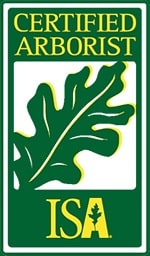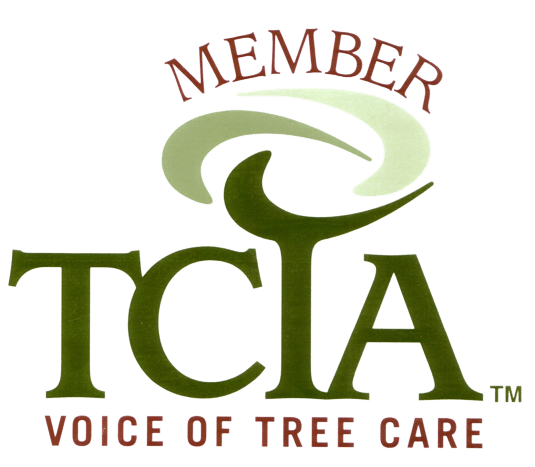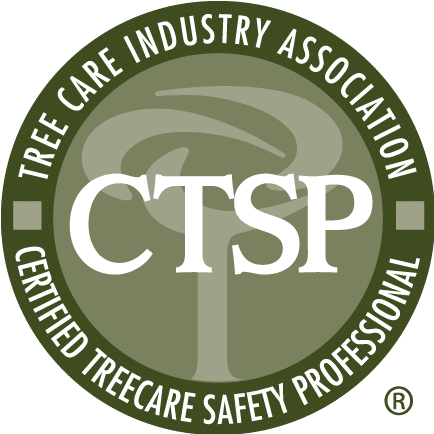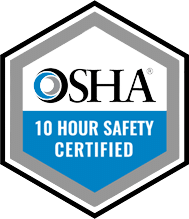
Contact Us for Professional Tree Services in Lexington.
LEXINGTON, MA TREE REMOVAL SERVICE
A leader in tree care and tree removal since 1993
TREE REMOVAL SERVICES IN LEXINGTON, MA
At Marquis Tree Service, we offer professional and affordable tree services to residential and commercial clients in the Lexington area. Our highly skilled arborists have years of experience providing various services, including tree removal, tree pruning, stump grinding, and crane-assisted tree removal.
We are committed to providing top-quality services in Lexington, MA, at affordable prices, and we use the latest equipment and techniques to ensure that your trees are healthy, safe, and aesthetically pleasing.
We also pride ourselves on our excellent customer service. We understand that tree care can be a complex and sometimes stressful process, so we are committed to communicating with our clients every step of the way. We will work with you to develop a customized plan that meets your specific needs and budget and keep you informed throughout the process.
If you need reliable and affordable tree services in Lexington, MA, look no further than Marquis Tree Service. We have been an area leader in tree care and removal since we were established in 1993 and are committed to providing top-quality services that meet the unique needs of our clients. Contact us today to schedule a consultation and learn more about our tree services.
Lexington Tree Removal Service FAQs
What are the benefits of tree removal?
Tree removal offers several benefits for homeowners and their properties. Here are some of the key advantages:
- Safety: Removing dead, diseased, or damaged trees eliminates potential hazards. This is especially important during storms or heavy winds when weak trees or branches can fall and cause damage to your home, vehicles, or even people.
- Enhanced Tree Health: Removing a tree suffering from disease or infestation can prevent the spread of these issues to nearby healthy trees. This proactive approach can help maintain the overall health of your landscape.
- Improved Aesthetics: Tree removal can enhance the appearance of your residential property. It opens up space, allows more light to reach your yard, and can create a cleaner, more visually appealing landscape.
- Protection for Structures: Large trees with extensive root systems can cause damage to driveways, foundations, and underground utilities. Removing such trees can prevent costly structural damage.
- More Space: Eliminating a tree can provide additional space for landscaping, gardening, or other outdoor activities. It can also free up areas for new tree planting or other desired features.
- Storm Damage Prevention: Trees too close to your home or power lines can become a liability during storms. Removing them in advance can prevent damage and power outages.
- Increased Property Value: A well-maintained landscape with strategically removed trees can boost the value of your property by making it more attractive to potential buyers.
- Fire Safety: In some areas prone to wildfires, tree removal can create defensible space around your property, reducing the risk of fires spreading.
- Lawn Health: Trees with dense canopies can inhibit grass growth and other plants underneath. Removing these trees can promote a healthier lawn.
- Peace of Mind: Knowing that your property is free from potential tree-related hazards provides you and your family peace of mind.
Do I need a permit to remove a tree?
In Massachusetts, the regulations regarding tree removal permits can vary depending on your location. Here are some general guidelines to help you determine whether you need a permit to remove a tree on your residential property:
- Local Regulations: Many cities and towns in Massachusetts have their tree removal ordinances and bylaws. It’s essential to check with your local government or municipal arborist to understand the specific requirements in your area. They can provide information on whether a permit is needed and how to obtain one.
- Tree Size: Some municipalities require permits to remove larger trees, often defined by a minimum diameter at breast height (DBH). Smaller trees may not require permits, but this can vary from place to place.
- Protected Species: Local or state regulations may protect certain tree species. Removing such trees may require special permits or mitigation measures.
- Public Right of Way: Trees located within the public right of way, typically along streets and sidewalks, are often subject to stricter regulations. You may need permission from your local public works department or tree warden to remove such trees.
- Historic Districts: If your property is located within a designated historic district, additional regulations may be governing tree removal to preserve the area’s character.
- Emergency Situations: In some cases, emergency tree removal due to safety concerns may be exempt from permitting requirements. However, it’s essential to document the situation and notify local authorities promptly.
- Professional Guidance: It’s highly recommended to consult with a local tree care professional or arborist familiar with your area’s regulations. If needed, they can assess the tree’s health and guide the permitting process.
Before proceeding with tree removal, we recommend contacting your local authorities or contacting us for a free estimate and consultation to determine if a permit is required for your situation. We are here to assist you in achieving your tree care goals while adhering to local regulations.
How do I know if my tree is healthy?
Ensuring the health of your trees is crucial for their longevity and the safety and aesthetics of your residential property. Here are some key indicators and steps to help you determine if your tree is healthy:
- Visual Inspection: Begin by visually inspecting the tree. Look for the following signs of a healthy tree:
- Full Canopy: A healthy tree should have a full and vibrant canopy of leaves or needles. Sparse or discolored foliage can indicate problems.
- Strong Bark: The tree’s bark should be intact and free from cracks, wounds, or peeling. Healthy bark is a protective layer for the tree.
- New Growth: Check for new growth, including leaves, branches, or buds. This indicates that the tree is actively growing.
- No Signs of Disease: Look for any visible signs, such as unusual spots, growths, or discolored areas on the leaves or bark.
- Tree Structure: Assess the overall structure of the tree:
- Balance: A healthy tree should have a balanced and symmetrical canopy. Signs of leaning or imbalance may indicate structural issues.
- No Dead Branches: Dead or broken branches should be pruned promptly as they can pose a hazard and may signify tree decline.
- Soil and Root Health: Healthy trees depend on healthy soil and roots:
- Soil Quality: Ensure that the soil around the tree is well-draining and not overly compacted. Healthy soil provides essential nutrients to the tree.
- Roots: Examine the area around the tree’s base for exposed roots, which can signify soil erosion. Healthy roots are typically hidden beneath the soil.
- Pests and Diseases: Be vigilant for signs of pest infestations or diseases:
- Insect Activity: Look for unusual insect activity, such as holes in leaves, sawdust-like material, or visible insects on the tree.
- Fungus or Mold: Check for fungus or mold on the tree’s bark or leaves.
- Professional Assessment: Consult a professional tree care specialist or arborist. They can comprehensively evaluate your tree’s health, identify issues that may not be apparent to the untrained eye, and recommend appropriate treatments or care.
- Regular Maintenance: Proper tree care, including pruning, mulching, and watering, can help maintain tree health. Pruning can remove dead or diseased branches, improving the tree’s overall condition.
- Preventative Measures: Implement preventive measures such as mulching to retain soil moisture, avoiding damage to the tree’s roots or trunk, and providing adequate water during dry periods.
Our team of certified arborists can assess your trees and recommend any necessary treatments or services.
What can be done if a tree in Lexington, Massachusetts is considered unhealthy or dangerous?
If a tree in Lexington, Massachusetts is unhealthy or dangerous, it should be assessed by a certified arborist and possibly removed or treated to mitigate risk.
How much does tree removal cost in Lexington?
The cost of tree removal in Lexington varies depending on the size and complexity of the tree’s location.
What costs will you require to have your Lexington tree expertise?
Consulting with a tree expert or arborist in Lexington may cost between $80 and $150 per hour. Prices will vary.
MARQUIS TREE SERVICES
TREE REMOVAL
Tree removal is the process of taking down a tree, including the root system, and removing it from the property. This service is typically required when a tree is dead, diseased, or poses a safety hazard.
TREE PRUNING
Tree pruning is the process of removing dead, diseased, or overgrown branches from a tree in order to improve its health, appearance, and safety.
STUMP GRINDING
Stump grinding is the process of using specialized equipment to grind a tree stump down to below ground level. This is typically done after a tree has been removed in order to remove the remaining stump and make the area safer and more attractive.
CRANE ASSISTED TREE REMOVAL
Crane assisted tree removal is a method of removing a tree using a crane in conjunction with other specialized equipment. This method is typically used for larger trees that cannot be safely taken down using conventional methods, or for trees that are located in difficult-to-reach areas.
LAND CLEARNING
Land clearing service involves the removal of trees, brush, and other vegetation from a plot of land. This service is typically used for new construction, agriculture, or to create firebreaks. It may also include the removal of stumps, rocks, and other debris to prepare the land for further use.
EMERGENCY SERVICES
Emergency tree services are critical when a fallen tree threatens your home or property, or poses a safety risk. Our team is available 24/7 to handle any tree-related emergency, including fallen or damaged trees, storm damage, or hazardous trees. We have the experience, tools, and expertise to assess the situation.
TREE & SHRUB HEALTH CARE
Tree and shrub health care is a specialized service focused on the diagnosis, treatment, and prevention of diseases and pest infestations that affect woody plants in residential and commercial landscapes. This comprehensive approach includes soil analysis, targeted fertilization, preventative treatments, and ongoing monitoring to maintain plant vigor, extend longevity, and preserve the aesthetic and ecological value of trees and shrubs.
CLIENT TESTIMONIALS
GIVE US A CALL TODAY!
WHY WORK WITH US













Copyright © marquistree.com 2022
781 860 9618
9 Sterling Road
N. Billerica, MA 01862
marquistree@gmail.com
SOCIAL MEDIA